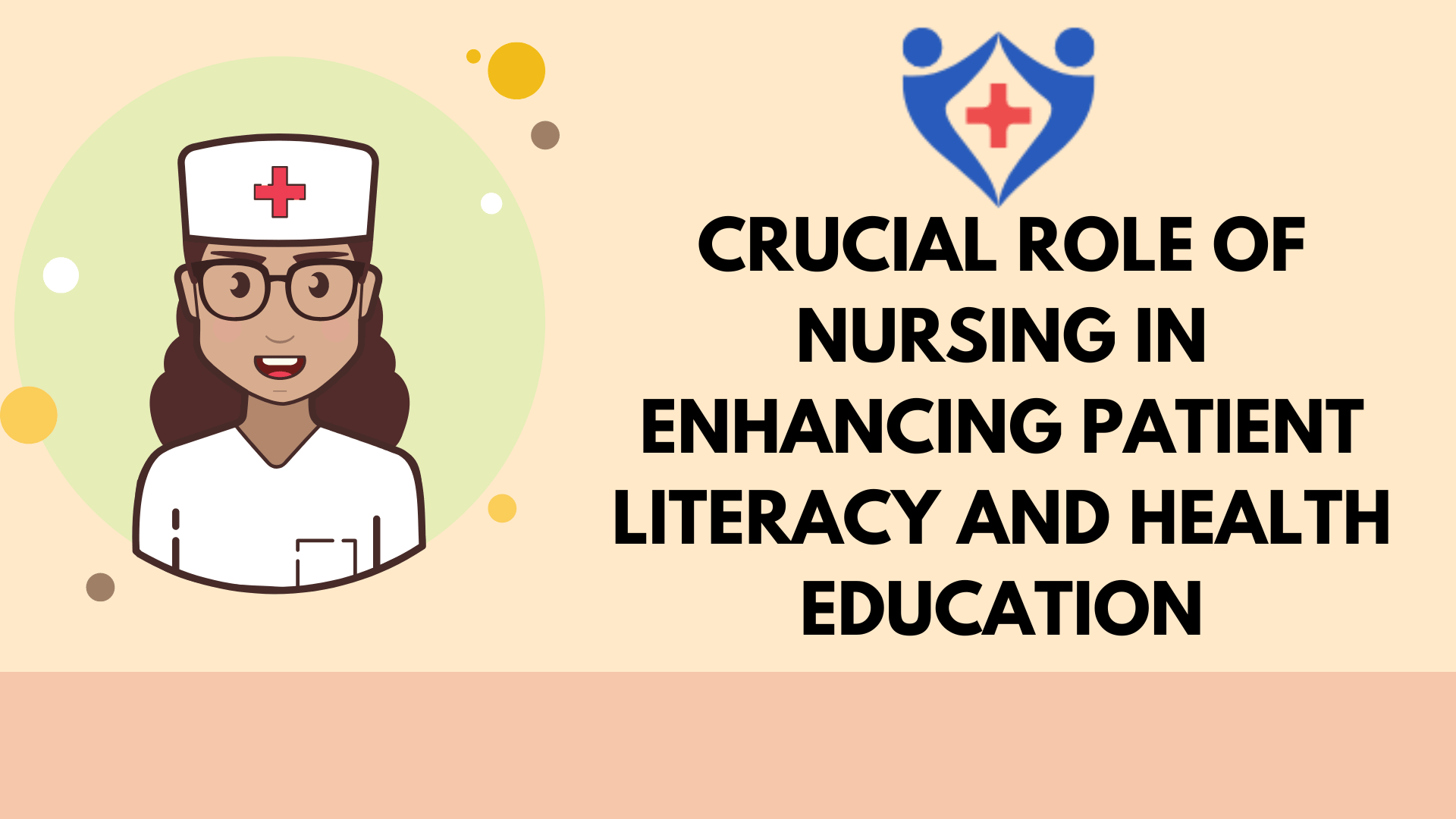In the realm of healthcare, the role of nursing extends far beyond the bedside. Nurses serve as educators, advocates, and mentors, playing a pivotal role in enhancing patient literacy and health education. This comprehensive exploration delves into the profound impact nursing has on patient literacy and health education, shedding light on its significance in promoting overall well-being and empowering individuals to make informed healthcare decisions.
Understanding Patient Literacy and Health Education:
Defining Patient Literacy: Patient literacy encompasses the ability of individuals to obtain, process, and comprehend basic health information and services needed to make appropriate healthcare decisions. It transcends mere reading and writing skills, incorporating elements of numeracy, comprehension, and critical thinking.
Importance of Health Education: Health education encompasses the dissemination of accurate, relevant health information to individuals and communities, empowering them to adopt healthy behaviors, prevent diseases, and manage chronic conditions effectively. It serves as a cornerstone of preventive healthcare and patient empowerment.
Table: Impact on Patient Literacy and Health Education
| Nursing Intervention | Impact on Patient Literacy and Health Education |
|---|---|
| Individualized Education Plans | Tailored education plans enhance patient understanding and adherence. |
| Multimedia Presentations | Engage patients actively and improve information retention. |
| Culturally Competent Communication | Bridge communication gaps and ensure equitable access to healthcare information. |
| Interactive Learning Modalities | Cater to diverse learning styles and preferences, promoting behavior change. |
The Role of Nursing in Patient Literacy and Health Education:
Patient Advocacy and Empowerment: Nurses serve as advocates for patients, ensuring they have access to comprehensible health information tailored to their needs and preferences. By fostering open communication and active listening, nurses empower patients to actively participate in their care decisions, ultimately improving health outcomes.
Health Promotion and Disease Prevention:
Through patient education initiatives, nurses play a pivotal role in promoting health literacy and disease prevention. From conducting wellness screenings to delivering educational sessions on nutrition, exercise, and chronic disease management, nurses equip individuals with the knowledge and skills necessary to lead healthier lives.
Adaptation to Diverse Needs:
Recognizing the diverse cultural, linguistic, and socioeconomic backgrounds of patients, nurses employ a patient-centered approach to health education. By leveraging culturally sensitive communication strategies and utilizing interpreters or translated materials when necessary, nurses bridge communication gaps and ensure equitable access to healthcare information.
Evidence-Based Practices in Nursing Education:
Utilizing Evidence-Based Resources:
In an era dominated by information overload, nurses rely on evidence-based resources and tools to deliver accurate and up-to-date health information to patients. From reputable websites and peer-reviewed journals to clinical practice guidelines, nurses sift through vast amounts of information to curate resources that align with best practices and evidence-based guidelines.
Interactive Learning Modalities:
Gone are the days of passive health education sessions. Nurses leverage interactive learning modalities such as simulations, role-playing exercises, and multimedia presentations to engage patients actively in the learning process. By catering to diverse learning styles and preferences, nurses enhance information retention and promote behavior change.
The Impact of Nursing on Patient Outcomes:
Enhanced Health Literacy: Through targeted education interventions, nurses empower patients to navigate complex healthcare systems, understand treatment options, and adhere to medication regimens. By fostering health literacy skills, nurses equip patients with the confidence and knowledge needed to actively engage in self-care and disease management.
Improved Treatment Adherence:
Studies have consistently demonstrated a positive correlation between patient education and treatment adherence. By providing clear instructions, addressing misconceptions, and reinforcing key concepts, nurses enhance patient understanding and compliance with prescribed treatment plans, leading to better health outcomes and reduced hospital readmissions.
Conclusion:
In conclusion, nursing plays an indispensable role in enhancing patient literacy and health education. From advocating for patient rights to delivering evidence-based education interventions, nurses serve as catalysts for positive behavior change and improved health outcomes. By embracing the principles of patient-centered care, cultural competence, and evidence-based practice, nurses empower individuals to take charge of their health and well-being, ultimately fostering healthier communities and societies.

